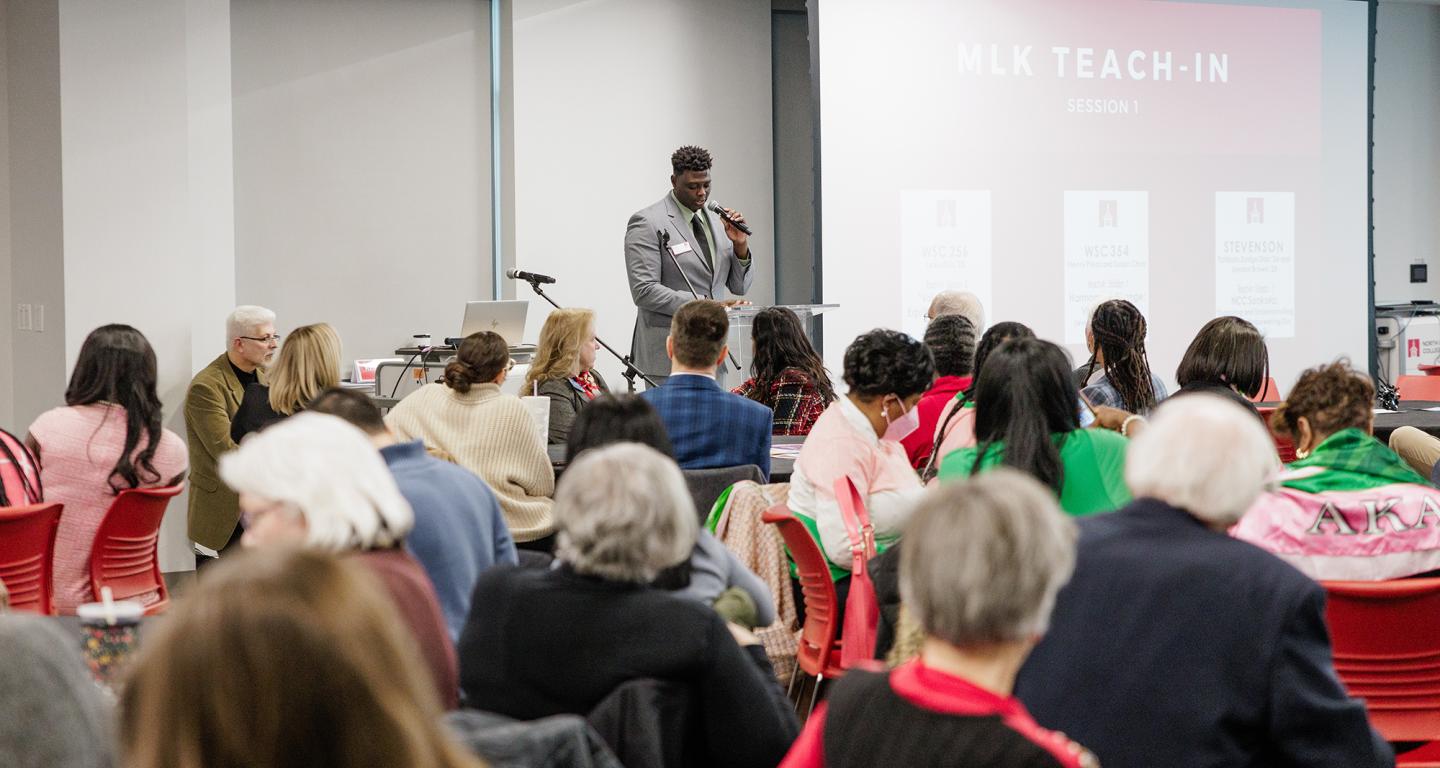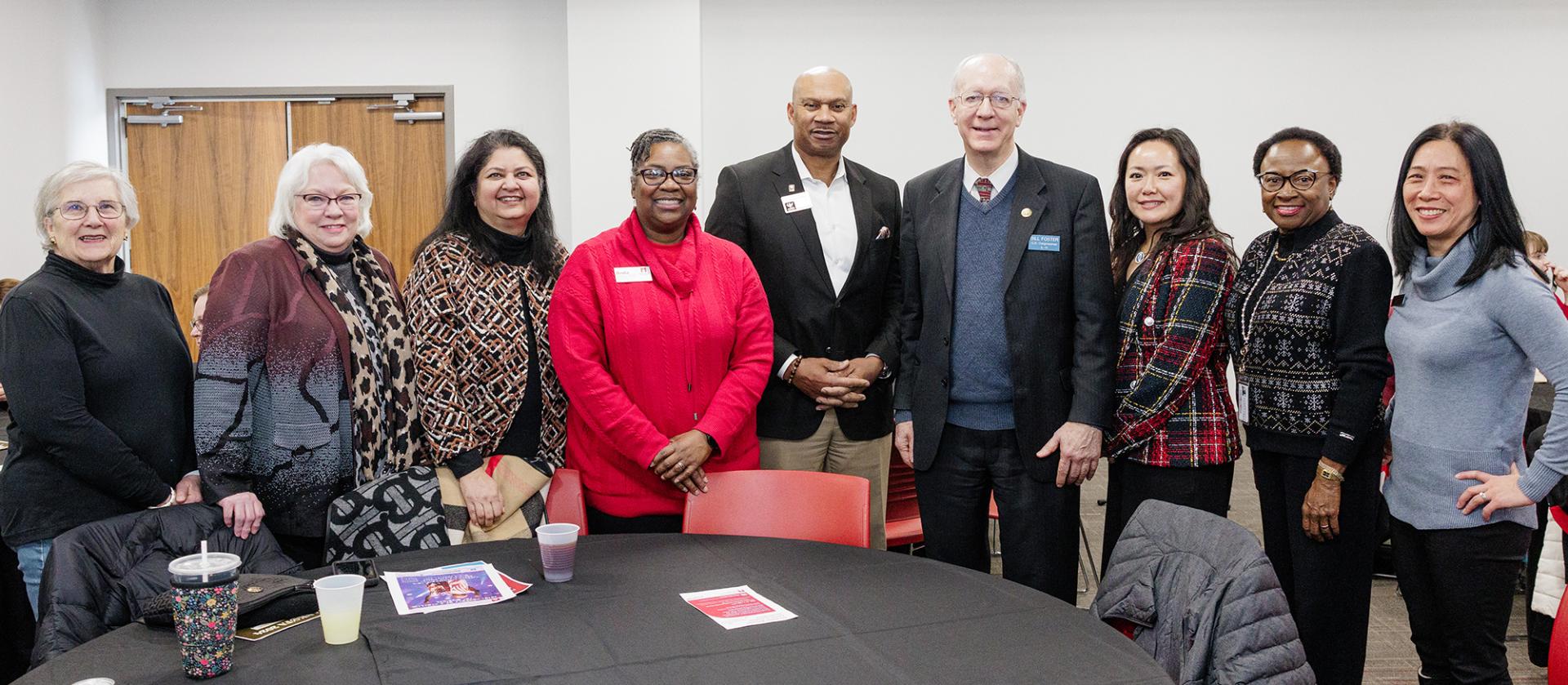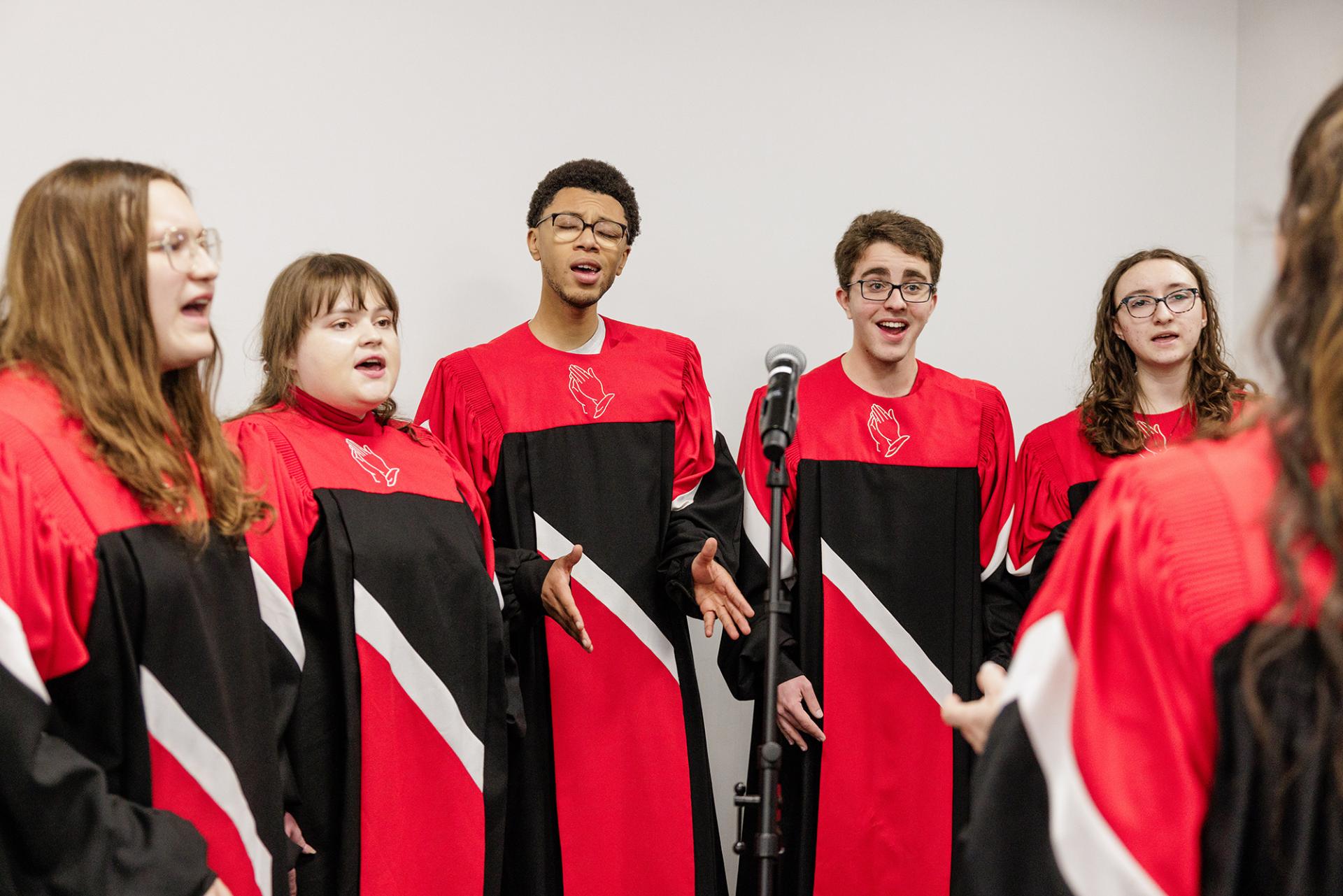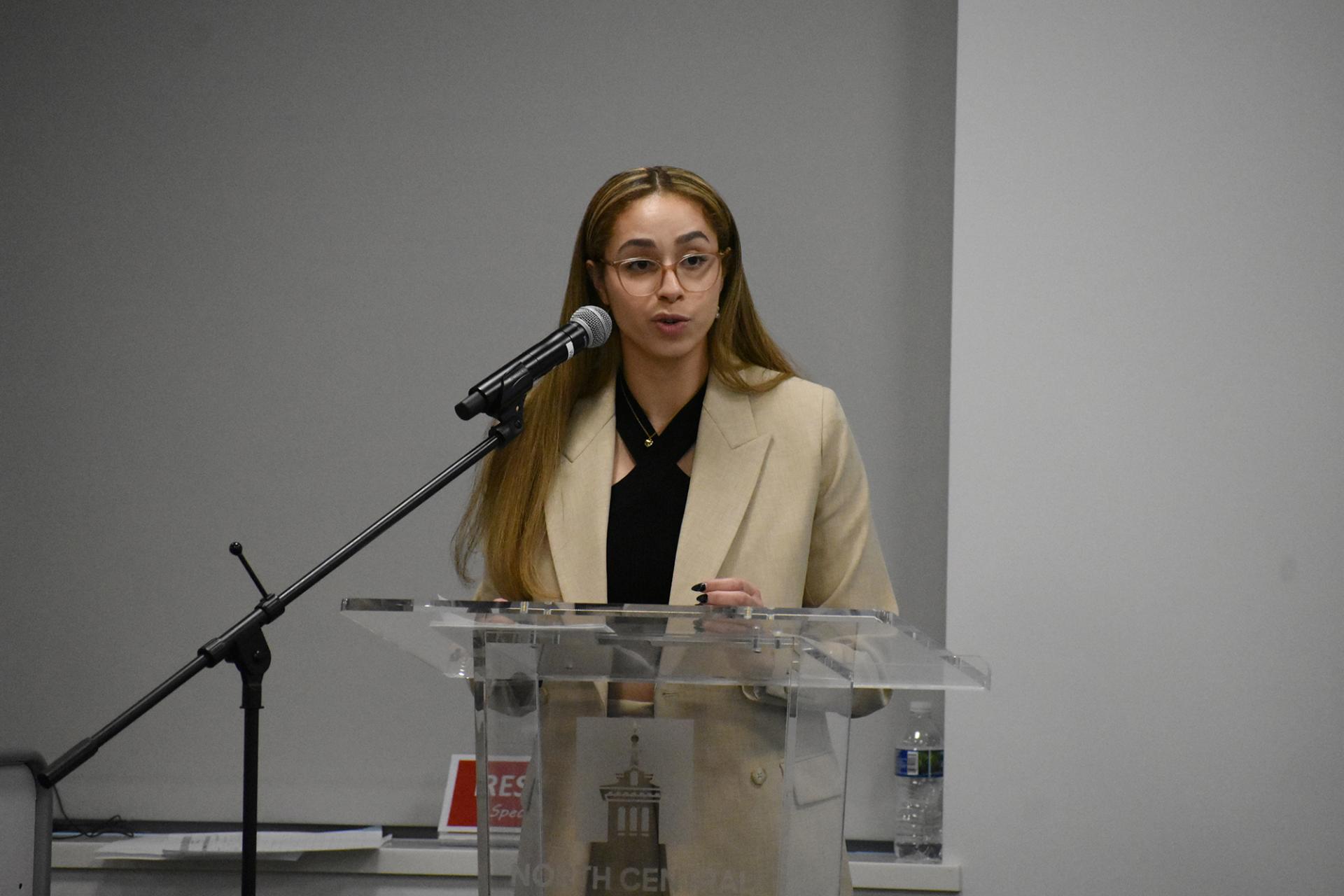The event’s traditional prayer luncheon featured a keynote address from Carlos G. Rodriguez, one of the quad-chairs of the Illinois Poor People’s Campaign, an organization that advocates for policy changes to improve the lives of those living below the poverty line, regardless of race. He reviewed the Campaign’s history, including the inspiration it draws from King, and highlighted the many actions the Campaign is involved in to bring about a revival of devotion to the rights of the poor.
Rodriguez quoted the Campaign’s founders and their desire for a new devotion to the rights of the poor, saying, "We need a moral movement across the nation. A movement that is about the moral fabric of our society, guided by a deep moral and Constitutional vision of what is possible."
Content creator and influencer Raven Schwam-Curtis gave the closing keynote address. She talked about the potential of the digital space as a tool for what she called “the collective liberation of marginalized communities.” Schwam-Curtis cited several primary tenets of liberation including true care over performative allyship, truth and accountability, and modeling the behavior we want to see in the world.
She gave examples to illustrate how racial micro-aggressions are prevalent in digital media due to the relative anonymity of posting to social sites and in comments. She stressed the importance of maintaining civility and positivity in response to such aggression.
“You must be disciplined enough in your character, particularly when you are challenged or triggered, that you can be disciplined in your communication,” Schwam-Curtis said.
The day included two teach-in sessions, one in the morning and one in the afternoon. Attendees could choose from several seminars with speakers from North Central exploring the theme of “Normalcy, never again!” Each session took a different look at the Poor People’s Campaign and Dr. King’s shared “Everybody in, nobody out” approach to working for diversity, equity, inclusion and belonging and how it echoes even now. Some of the presenters were current students and young alumni. As they explored issues relevant to their development as leaders, they displayed their knowledge and ability to dialogue about creating positive change.




